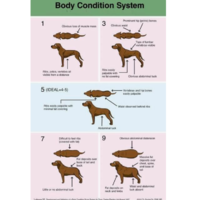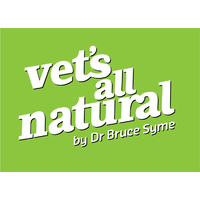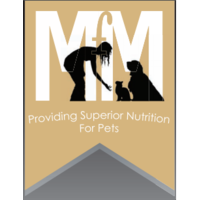Dealing with Allergies
Improving your Dogs Health
So many discussions around remedies for dogs with allergies is extremely confusing for many dog owners. It can be really disheartening trying to solve your dog’s allergies.
Whether your dog’s allergies appear in the form of itchy skin, ears or feet, or digestive problems like chronic diarrhea, allergy symptoms can make life miserable for both your dog and you.
An allergy is a state of over-reactivity or hypersensitivity of the immune system to a particular substance called an allergen. Most allergens are proteins from plants, insects, animals, or foods. Examples of common allergens are pollens, mold spores, dust mites, shed skin cells (similar to pet allergies in humans), insect proteins such as flea saliva, and some medications.
The four main types of dog allergies are:
- Food
- Environmental (Also called atopy)
- Flea
- Contact
Getting the basics right
The issue when dealing with allergies is where do you start? Discussing possible solutions with my customers it starts with getting the “gut” balance right
Your dog has a unique collection of hundreds of different types of single-celled microorganisms (bacteria and other microbes) in its digestive tract, referred to as the gut microbiome. Gut bacteria are crucial for digestion and obtaining nutrients from the food your dog eats. From weight to mental health, the microbiome affects almost every aspect of your dog’s health and happiness.
Over 90% of the dog’s immunity comes from the microbiome working in association with the mucous membrane lining of the gut. When working at an optimal level this provides a protective barrier that inhibits absorption of harmful substances such as toxins, carcinogens, allergens and drugs, with these potentially harmful substances simply being eliminated from the body as waste.
In short if your dog’s gut is working well it will help many aspects of your dogs health and wellbeing including the ability to deal with allergens.
Improving gut health can take time, here are some basic tips that may help
Review dry food
- A good starting point is to review your dog food, ensure if you are feeding dry food that there are no harsh fillers such as corn, wheat, barley, sorghum, by-products, just to name a few of the many cheap ingredients that are harsh on the digestive system.
- First ingredients should always be a named protein.
- Seasonal vegetables feature highly, although not heavily legume based.
- Omega oils, vitamins and minerals are mentioned in the ingredients list.
- Price is a good indication for quality but checking on the above points will help eliminate some high priced brands that are under achievers in the pet food market.
Raw diet
- A number of people are going to 100% raw diet, if done well there are significant benefits, Dr Ian Billinghurst book “Give your dog a bone” provides the foundation for anyone considering raw feeding. The issue for raw feeders is getting the balance right, if you are trying to resolve issues and don’t get the ratios right you may lose any benefits of raw feeding.
Probiotics, Prebiotics Symbiotic
- Probiotics are live microorganisms that live in various parts of your dog’s body, including the gastrointestinal tract, the oral cavity, vagina, nasal cavity, respiratory organs and even on the skin. Keeping a good balance of good (vs bad) bacteria is vital for your dog’s health.
- Prebiotics are various types of preferred foods that nourish the probiotic bacteria and keep them active. Feeding prebiotics along with probiotics gives your dog symbiotics. Symbiotic means a beneficial interaction (known as a symbiotic relationship) between two different things. Prebiotics and probiotics form a perfect couple by working together to keep your dog’s body super-healthy.
Natural sources include fermented vegetables, organic goats milk, bone broth, in addition there are a number of products that you help enhance these areas, one leading the way is Synbiotic.
Other areas to consider for reducing risk to allergies
- Antibiotics – these medications do not discriminate between good bacteria and bad bacteria, and whilst being essential in the treatment of bacterial disease, antibiotics also devastate the population of the microbiome. Feeding a probiotic supplement together with natural food sources are essential following a course of medication.
- Shampoos and conditioners – excessive use of shampoos and conditioners, or the use of the wrong types (for example, using human shampoo rather than a canine shampoo) can irritate the skin, this adds stress on the immune system causing imbalances in other areas.
- Parasite control medications – flea, tick and worm medications can have a significant effect on your pet, these are harsh chemicals which can lead to significant imbalances, if this is the agitator then a discussion with a holistic vet may offer a natural solution.
- Pollutants – abound in our environment from air born pollutants to household cleaners and disinfectants. Be aware of what you are using and how your pet encounters these on a daily basis.
- Natural allergens – many of the dogs we see with skin conditions show seasonal allergy to grasses and pollen. For dogs suffering this type of problem a quick and easy aid in their treatment is to wipe them down with a damp cloth on returning home from a walk. Simply removing the offending irritants from the feet, toes, muzzle and chest can be a great help whilst we work to get the diet, blood nutrient levels and the microbiome back in balance.
- Stress – we are not the only ones to suffer stress related disorders. Our pets can also suffer, and the gut is probably the first part of the body system to be affected. Stress comes in several forms for our canine companions, with one of the most common being nutritional stress from a poorly balanced diet. Other subtler forms of stress can result from the dog not having a clearly defined chain of command within the pack (dogs think of their human family as a pack and the rules of the pack must apply) whereby the dog assumes a leadership/protector attitude because of a perceived lack of leadership from any other member of the pack. There is no such thing as equality in a dog pack; each member assumes their position in the hierarchy through their ability to lead or be led. Other stresses such as separation anxiety can also impact upon the health and wellbeing in the same way as previously discussed.
It is not a one size fits all, in many cases it is a matter of elimination. Vets will generally recommend steroids as well as anti-allergy drugs like Atopica or Apoquel, these may offer a short-term solution as they suppress your dog’s immune system. Once the course is complete and the irritant has not been removed, the issue can start all over again.
Some of our products to help improve your pets health are:
Raw Products – provides the basis for a quality diet, adding premium commercial dry foods or your own balanced vegies, offal, bones, vitamins and minerals you can’t go past our quality raw.
Balance Life – used either as a meal or a topper offers significant nutritional benefits to help balance the gut
Bone Broth - used to treat leaky guy and digestive issues, supporting good joint health as well as beneficial to treat allergies, an all round winner.
Synbiotic – offering combination of probiotic and prebiotic helps rebalance the gut.
Vets All Natural - Complete Mix mimics the gut content of a prey animal and provides all the vegetable matter your dog or cat needs, just add raw meat!
search for articles

Understanding different food options for your pets
Author: Best for Pets Date Posted: 7 November 2020
A short guide to different feeding options for your pet Like humans there is becoming a huge amount of information on views on how to feed you puppy. I hear this so often that the “breeder” recommended this or the "Vet" recommend that. It is not to say they are wrong but there are so many factors to take into consideration. The important thing is to understand that building good gut health does not come from one source and a diet with variety will help build good health for the life of the puppy through to adulthood So lets explore a few options in feeding your pet Biologically App...
Read more
Understanding dry food labels
Author: Bill Wiadrowski
Lets see what the experts say on dry food When you're looking at the ingredient label on dog food, how can you tell if it's quality nutrition? What should I be looking for? Producing a label for pet food is something of an artform. Obviously, the seller is attempting to enhance the positive aspects of the food and the perceived point of difference, whilst down-playing or ignoring the negatives. Attempting to unravel the mystery of what is actually in the bag can be quite difficult, but there are a few tel...
Read more
Key steps to building a healthy future for your puppy
Author: Best for Pets Date Posted: 7 November 2020
Key steps to building a healthy future for your puppy We know that your puppy's health is your priority. Giving your puppy the right care and attention early on will help to ensure they live a long and healthy life. The first few months play a crucial role in your puppy’s long-term growth, development and health. Aside from ...
Read more
Hemp Seed Oil The NEW Super Food for your Pets
Author: Best For Pets
Why is everyone getting excited about Hemp Seed Oil for their Pets? Until recently Hemp Seed Oil was hardly heard of – now it is everywhere. And with good reason; we have barely scratched the surface of how the therapeutic benefits of Hemp Seed Oil, but the results are certainly proving to be a winner for your pet. It may not solve all your problems, but it is an affordable option for many when comparing some of the expensive treatments that are getting recommended. Certainly, value for money and like most things it can take a few weeks to start see...
Read more
Dealing with Allergies
Author: Best for Pets Date Posted: 5 May 2020
Improving your Dogs Health So many discussions around remedies for dogs with allergies is extremely confusing for many dog owners. It can be really disheartening trying to solve your dog’s allergies. Whether your dog’s allergies appear in the form of itchy skin, ears or feet, or digestive problems like chronic diarrhea, allergy symptoms can make life miserable for both your dog and you. An allergy is a state of over-reactivity or hypersensitivity of the immune system to a particular substance called an allergen . Most allergens are proteins from plants, insects, animals, or foods. Examp...
Read more
DCM - Dilated Cardiomyothpy some things you need to know
Author: Best for Pets Date Posted: 12 July 2019
Dilated Cardiomyopathy (DCM) With so much news an around DCM and what you feed your dogs lets have a look at what we know. First of all there have been approx 560 cases in USA diagnosed since 2014. 7 cases were reported between 2014 and 2017 and was not until the the Food and Drug Administration(FDA) in the USA was made aware by a group of veterinary cardiologist in the North West there was some concerns based on the following two factors: 1) not known breeds were being diagnosed DCM 2) most had been eating grain-free diets prior to diagnosis The FDA released its ...
Read more
Keeping your dogs weight healthy through the winter months
Author: Best for Pets Date Posted: 26 May 2019
Keeping your dog health y through the winter months When it comes to the seasons changing, we all know that humans tend to pack on a little extra weight over the winter months. A lack of exercise and the ability to go outdoors makes it easy for us humans to get off track. But when it comes to dogs, their bodies are actually programmed to help them survive in cooler conditions. A lot of this is instinct, and we can’t do much about it. The one thing you can do is to adjust your dog’s diet. Let’s take a look at some of the reasons why your dog’s diet may need to change this winter season How Does Colder Temperatures Affect Wei...
Read more
Some facts about dry food
Author: Lisa Caines Date Posted: 16 September 2018
Buying premium dry food does matter Your dog depends completely on you for health and happiness, so it is important that you understand your dog's dietary requirements. As a good dog owner, you will have to consider what type of dog food is the best option for your furry companion. Dry dog food provides a very cost-effective way to provide your dog with all the nutrients and vitamins needed for its good health and long life. Although many dog owners have moved away f...
Read more
Find out the truth about Tuff Rock K9 Joint Formula
Author: Lisa Caines
What is the truth about Tuff Rock K9 Joint Formula? It works and works well, having bought and sold many products for dogs who have soreness of various descriptions over the years I can not go past this product. I have had customers where senior dogs who were struggling with getting up, middle aged dogs who showed signs of soreness after certain activities and young dogs in their prime all show significant long term improvement after using Tuff Rock K9 JF. What is even better is that it is holistic product with no hidden nasties in it so it cant be a bad...
Read more
Choosing the right treats for your dog
Surely there is no such person as a dog owner who never gives his or her dog a treat. We all like to see our dog’s tail wag, and his face light up with attentive anticipation, right? But how do you know that the treats you give him are healthy? It’s actually pretty simple. As with every food you buy (for yourself or your dog), it’s all about the ingredients. If you do not already read the label of every food item you consider buying, get in the habit! Most of the information you need to know in order to determine the product’s quality is legally required to appear on the label. Things to look for Australian Made – t...
Read more
Three reasons your dog might be missing something in their diet
3 signs that your dog might be missing out on something in their diet Eating a lot of dirt or grass, dogs when missing something they will generally crave for it and as they do not have the opportunity to be selective in supplements to support any deficiencies, they will then look for these nutrients from either dirt or grass. Coat condition becoming dull even though they may be on a balanced diet can be a good indicator that there is still something missing from their diet. Their coat is a reflection from the inside out and how everything is travelling so any changes in coat condition should be investigated If you feel your dog is a bit lethargic f...
Read more
Feeding Raw Bones for Cats and Dogs
Author: Dr Bruce Syme
Feeding Raw Bones to Dogs and Cats Background Eating raw bones is as completely natural as eating fresh meat for dogs and cats. They come hand in hand, in the wild. Both dogs and cats are natural hunters, cats always eating their food fresh, and dogs happy to eat fresh, or decaying. Either way, catching and eating prey has always involved the consumption of bones. Feeding bones to domestic dogs has been a time honoured tradition, and is still practiced by knowledgeable dog breeders and pet owners. The feeding of bones to cats has had less emphasis in the past, as...
Read more
Bindi's Story
Author: Meals for Mutts
Bindi is one of many dogs we are currently helping, but she is also one of the more severe cases w...
Read more




